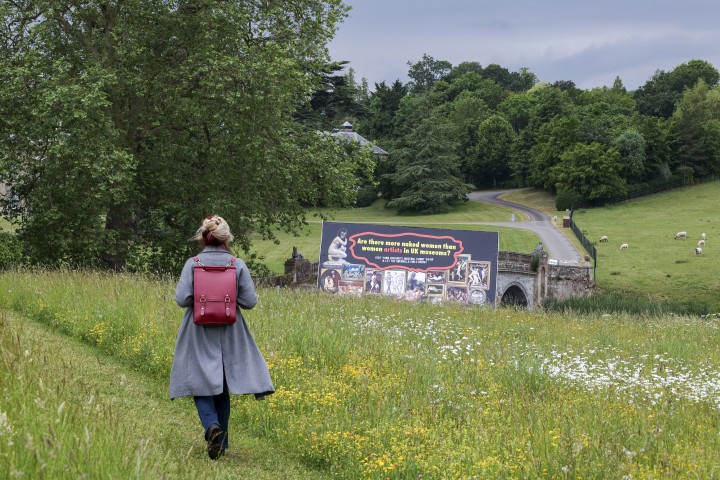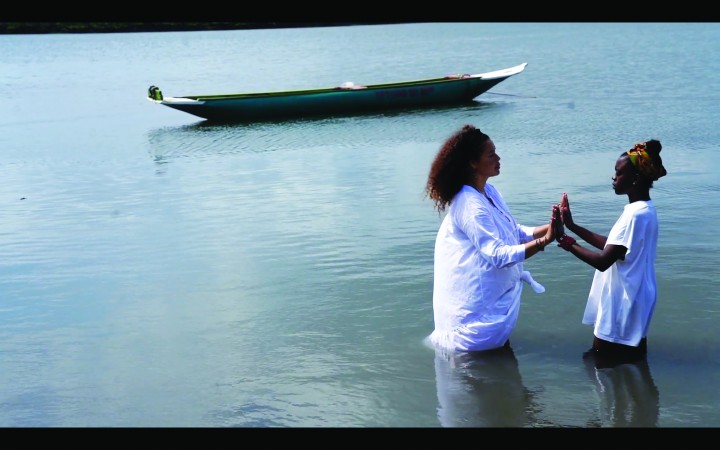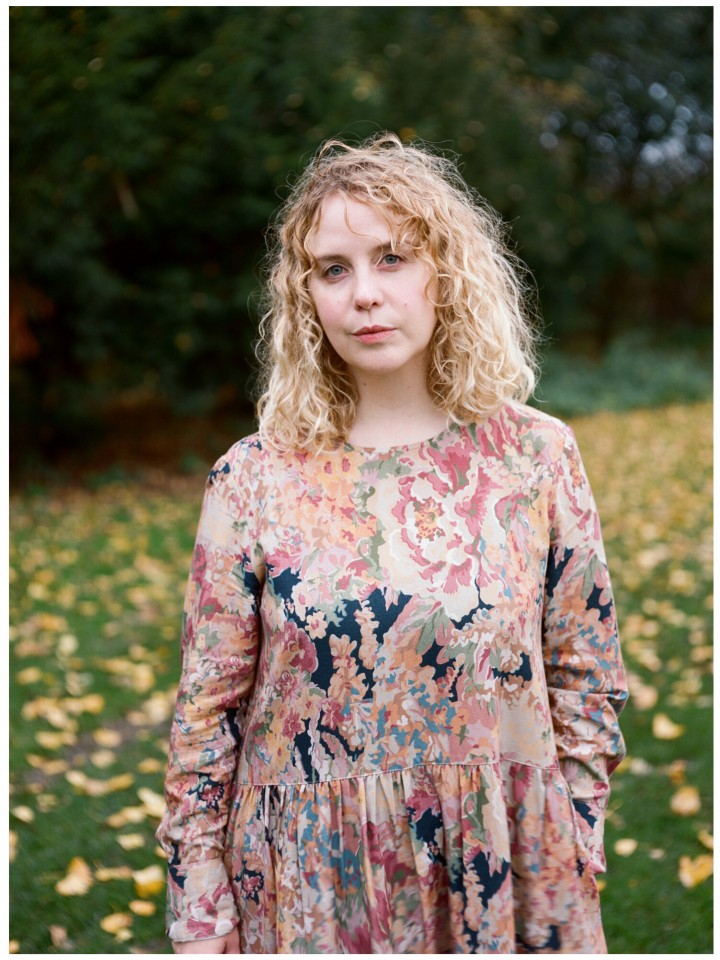Scottish Art News
Latest news
Magazine
News & Press
Publications
Making Connections: Art Night 2021
By Helen Nisbet, 18.06.2021

There are fragments of songs, repertoires and earworms that many of my Shetland peers share. They’re from halcyon moments - taken out of class to learn a play or perform an opera with a traveling arts group who have taken the decision (or perhaps just got the funding) to come to Shetland and spend time with kids in schools throughout the island. These little memories, which gave us such self determination, are enhanced by those of the music we’d hear and people we’d meet as part of Shetland’s legendary music tradition, particularly the annual Folk Festival. Musicians, flung into disparate parts of the island, separated by ferries, unable to get back to the main town after their concerts, would stay in our houses, roll in late and lick their breakfast plates clean in the morning. They were from all over the world - Glasgow, Faroe, Nova Scotia, Nashville, Manila, Aarhus… It was fairly simple, folk just like us, from places not so different to ours. We wore their signed t-shirts until the necks disintegrated and played their albums until the record player got relegated to the loft.
We could have been seen as remote or rural, but for us, Shetland was the centre of the universe.
So, as a curator working in London it makes me wince to hear villages, towns and even cities described as remote or, god forbid, as the “back of beyond”. In having the wherewithal to bring culture to communities, or even better - getting to know, and working within the culture that already exists - magical things can happen.
 Alberta Whittle, Holding the Line [still], 2021. Courtesy the artist and Art Night London.
Alberta Whittle, Holding the Line [still], 2021. Courtesy the artist and Art Night London.
My work has always been attentive to expansive ways of commissioning and presenting contemporary art. The first Art Night I curated was in the East London borough of Waltham Forest and focussed on municipal spaces such as libraries, social clubs, community centres and markets. This year, we’re piloting a festival outside London, taking place across the country (and online) - including colleges, train stations and high streets. We’re also presenting work in three areas of Scotland - Skye, Dundee and Glasgow, with partners DCA, Glasgow Women’s Library and ATLAS Arts; and one of our major new commissions is with the inimitable Glasgow-based artist Alberta Whittle, whose powerful, empathetic work will manifest as a film, screening programme in Abergavenny, Derry and Uganda and a performance at Murray Edwards College, Cambridge.
The opportunity to do this was born from the sad and difficult year we’ve had. The flux and shift of life during Covid-19 left me with a deep desire to reach out, make connections and come together at a time when everything was fragmenting. The result feels hopeful and the artists have embraced the idea. The iconic, anonymous feminist art collective the Guerrilla Girls are making their largest ever UK public project which includes an interactive website, live online event and a series of billboards which will be pasted all over the country and hosted by partner organisations in each place (in Scotland with Glasgow Women’s Library and Dundee Contemporary Arts). For the project, titled The Male Graze, the Guerrilla Girls are revisiting the questions raised by their famous 1989 work Do Women Have To Be Naked To Get Into The Met? This time they are asking Are there more naked women than women artists in UK museums? The public are invited to go to their local or national museum, count the women and report back via the newly commissioned website.
Pre-pandemic I was already thinking about how to present the festival away from traditional centres. I began developing a co-commission with ATLAS Arts in Skye in 2019. Isabel Lewis, who was born in the Dominican Republic and is now based in Berlin, was selected due to her ability to bring people together - to pull us into our bodies and land at the essence of a thing through sound, movement and setting. The resulting work, What can we learn about love from lichen? is produced in collaboration with local people including a forager, composer and lichen expert who will lead a series of guided walks - at Achnacloich, Scorrybreac, and Coille Ìosal, Braes. The walks will weave a circuitous narrative about interspecies bonds and the potential for ecological attunement. They are brought together in a final hosted occasion at Braes Hall during the first weekend of the Art Night festival on 19 June 2021.
I did a site visit to Braes Hall in 2019 with Shona Cameron who we brought in to produce the project in Skye. It was an emotional experience. It sits within a gorgeous village and has the look, smell and atmosphere of the halls I knew so well from my childhood. When Isabel saw the building and its surrounding landscape she agreed it would be a beautiful location for her work. I like the idea that this commission will resonate with people and that one day someone might write about the influence it had on their own work.
 Helen Nisbet. Photograph by Robin Silas.
Helen Nisbet. Photograph by Robin Silas.
Curated by Helen Nisbet, Art Night 2021 marks the festival’s fifth edition. To celebrate, Art Night will be extending its run-time to a full month from 18 June to 18 July and will take place throughout the UK. Visit www.artnight.london to learn more and to join in.




